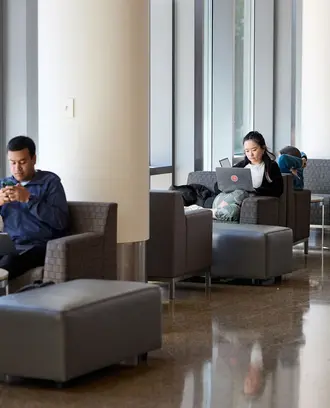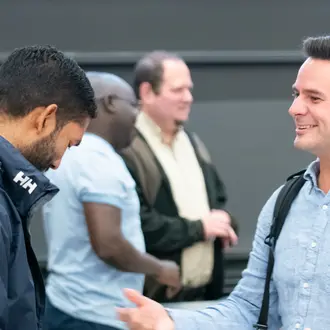If the pace, abruptness, and unpredictability of change during the global pandemic has you hoping for a chance to catch your breath, MIT Sloan Professor of the Practice Bill Aulet has a word of caution. “The world never will be slower than it is today,” he says. “That’s a fundamental state of affairs that entrepreneurs must embrace if they are to thrive in the midst of—and most certainly beyond—this current global crisis.”Aulet and his colleagues at the Martin Trust Center for MIT Entrepreneurship are not alone in teaching students to view every crisis as an opportunity, but their framework for excelling in the midst of disruptive change is distinctly MIT.
“The traditional approach to launching an enterprise is based on a command/control/conquer model,” says Aulet. “Gain control of resources and overpower your competitors. Go forth and win. The problem is that this approach only serves to optimize large organizations into doing what they’ve always done—which builds in a perilous fragility that can cripple a company when the marketplace and the world become more fluid and chaotic.” According to Aulet, many leaders default to a posture of being robust and resilient in the midst of a crisis. “Robustness is a trap, however, because it’s actually a neutral condition,” he warns. “Robust people and teams maintain their course when faced with adversity or unexpected events. In today’s world, weathering storms by continuing to march straight ahead is not a sufficient condition for success.”
Building ventures that don’t break
The Martin Trust Center, by contrast, teaches what it refers to as a resilience-plus approach. “Resilience-plus comprises a mindset, a skillset, and a mode of operation better suited to chaotic, rapidly evolving circumstances,” says Aulet. “We want our students to embrace adversity as an invitation to up their games in the same way that champion athletes or great artists transform setbacks into greater creativity and higher levels of performance. That’s the resilience-plus mindset.”
Aulet summarizes the skillset in six points.
- Understand how technical trends are changing and look ahead to what’s next.
- Track changing consumer behavior patterns and the evolution of cultural norms.
- Build an organizational strategy that capitalizes on your understanding of what lies in the future.
- Be prepared to step on the gas when you see a new opportunity emerging in the marketplace.
- Continually iterate to create a spiral of innovation that refines your response to new opportunities.
- Run data-driven experiments to test and perfect your operating assumptions about future trends.
“Companies that excel in these areas—Zoom, Peloton, Netflix, Grubhub, for example—have thrived during the pandemic,” notes Aulet. “They each invested heavily in their assumptions about changing consumer behavior before COVID. When the crisis presented a window of opportunity, each company accelerated and evolved their offerings to meet the moment.”
A Marshall Plan for entrepreneurship in the U.S.
Going forward, Aulet sees an even greater need for MIT-style entrepreneurship across the country. “Forget any notion of restoring what existed pre-pandemic,” he advises. “We will have more health crises, additional civil unrest, greater climate-driven challenges, additional economic disruption. To succeed under those circumstances, companies must resist the natural temptation to hunker down and focus just on what they themselves do well. For the resilience-plus entrepreneur, the flipside of less control is greater opportunity to collaborate.”
Aulet believes a community approach will drive the next wave of entrepreneurship in the U.S. “Don’t let a lack of control over resources discourage you from pursuing a new opportunity that you believe is right for your company,” he says. “Instead, tap into the skills and resources that lie within your network but outside your organization. If you can create something of value through collaboration, you can help build an ecosystem in which every party gains something for their investment in a particular project. Be a great collaborator, and you will attract great collaborators.”
Even though the Martin Trust Center approach has gained global recognition, Aulet believes there’s much more work to be done. “If the world is coming around to us,” he says, “then we need to reach further out into the world. Kentucky, Ohio, Idaho, Pennsylvania, you name it. The entrepreneurial spirit is out there, waiting to be tapped in places where people feel alienated and believe they have little control over their destinies. My hope for the future is that young entrepreneurs will not only be inspired to make money but to make more entrepreneurs. If we build more resilience-plus people, we will build a resilience-plus society.”



